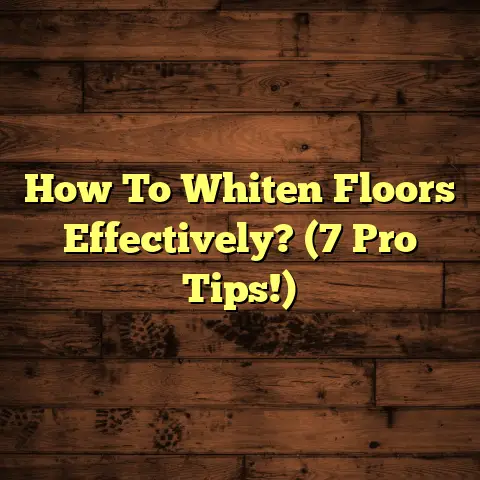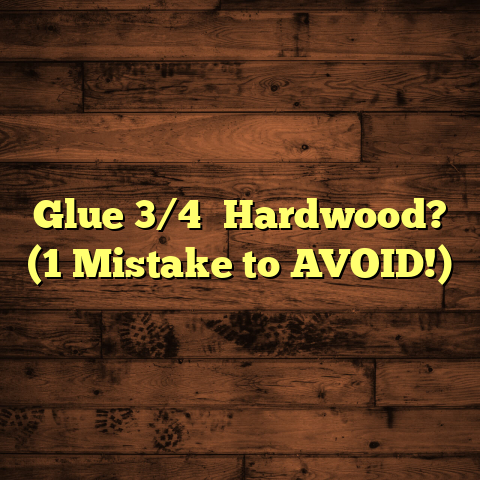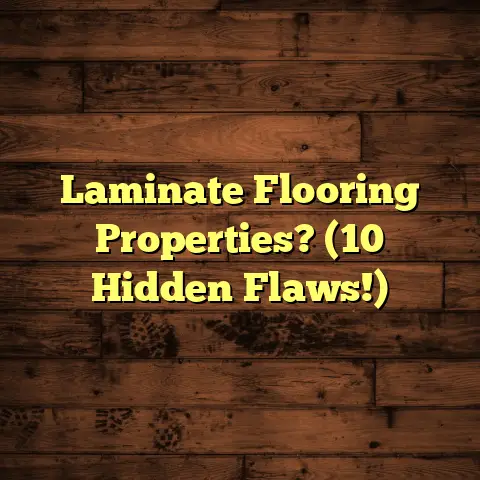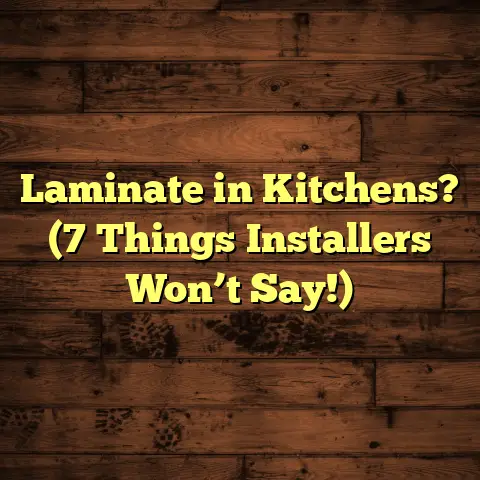Polyurea Garage Cost? (2X Cheaper NOW!)
You know that sinking feeling when you pull into your garage? Maybe it’s the sight of cracked, stained concrete. Or perhaps it’s the peeling paint that’s been bugging you.
It’s a common problem. Garages take a beating! And let’s face it, traditional flooring solutions often fall short. They’re not always the most durable or cost-effective.
That’s where polyurea comes in, and guess what? It’s become way more affordable lately! Let’s dive into why it might be the perfect solution for you.
Section 1: Understanding the Problem
Common Issues with Garage Floors
Garage floors are like the unsung heroes of our homes. They endure a lot, from heavy vehicles to harsh chemicals. Here are some of the most common problems I see:
-
Cracks: These can range from hairline fractures to significant fissures. They’re often caused by temperature fluctuations, settling, or heavy loads.
-
Stains: Oil, grease, road salt, and other chemicals can leave unsightly stains that are tough to remove.
-
Peeling Paint/Coatings: Traditional epoxy or paint coatings often peel or flake over time, especially with heavy use.
-
Moisture Retention: Concrete is porous, so it can absorb moisture, leading to mold growth, and further deterioration.
These issues aren’t just cosmetic. They can create safety hazards. Imagine tripping over a crack or slipping on an oily patch.
Plus, a damaged garage floor can decrease your property value. And constantly patching things up? That’s just throwing money away.
The Limitations of Traditional Flooring Solutions
I’ve installed a ton of different garage floor coatings over the years. Epoxy, paint, tiles… they all have their pros and cons. But here’s the truth: they often fall short in the long run.
-
Epoxy Coatings: Epoxy is a popular choice, but it can be brittle. It’s susceptible to chipping, scratching, and fading, especially with UV exposure. Plus, hot tire pickup can be a real issue.
-
Paint: Garage floor paint is the cheapest option upfront, but it’s also the least durable. You’ll likely be reapplying it every year or two.
-
Tiles: Tiles can look great, but they can crack under heavy loads. And if one tile breaks, replacing it can be a pain.
According to a study by the Concrete Polishing Association of America, polyurea coatings can last up to 25 years with proper maintenance, while epoxy coatings typically last 2-5 years. (Concrete Polishing Association of America)
That’s a HUGE difference!
Section 2: Introduction to Polyurea as a Solution
What is Polyurea?
Okay, let’s get a little technical. Polyurea is an elastomer formed by the reaction of an isocyanate component and an amine component. In simpler terms, it’s a super-tough coating that’s incredibly versatile.
Unlike epoxy, polyurea is much more flexible. It can expand and contract with temperature changes without cracking. It’s also highly resistant to chemicals, UV rays, and extreme temperatures.
Think of it as a protective shield for your garage floor.
Benefits of Using Polyurea
So, why am I such a fan of polyurea? Here are some of the key advantages:
-
Rapid Curing Times: Polyurea cures incredibly fast. I’m talking hours, not days. You can often walk on it the same day it’s applied.
-
Flexibility: As I mentioned, polyurea is flexible. This means it can handle the movement of your concrete floor without cracking.
-
Durability: Polyurea is incredibly tough. It can withstand heavy traffic, impacts, and abrasion.
-
Chemical Resistance: It’s resistant to oil, gas, salt, and other common garage chemicals.
-
UV Resistance: It won’t fade or yellow over time, even with prolonged sun exposure.
These benefits directly address the problems I mentioned earlier. No more cracks, stains, or peeling!
Section 3: Cost Analysis of Polyurea Garage Flooring
Initial Cost Breakdown
Alright, let’s talk numbers. I know cost is a big concern for everyone. The initial cost of polyurea flooring is typically higher than epoxy or paint.
However, it’s essential to look at the long-term value.
On average, polyurea flooring installation can range from $5 to $10 per square foot. Epoxy, on the other hand, might cost $3 to $7 per square foot.
But here’s the exciting part: Due to advancements in manufacturing and increased competition, the cost of polyurea has come down significantly in recent years.
I’ve personally seen prices drop by as much as 50% in some areas! That’s why I say it’s “2X Cheaper NOW!” compared to what it used to be.
Long-term Cost Benefits
Now, let’s talk about the long game. While polyurea might have a higher upfront cost, it can save you money in the long run.
-
Reduced Maintenance: Polyurea is easy to clean and requires minimal maintenance.
-
Fewer Repairs: Because it’s so durable, you won’t have to worry about frequent repairs or re-coating.
-
Longevity: Polyurea can last for decades with proper care. That means you won’t have to replace your garage floor every few years.
Consider this: if you choose a cheaper option like paint, you might have to reapply it every year at a cost of, say, $500. Over ten years, that’s $5,000! Polyurea, on the other hand, could last that entire time with minimal upkeep.
I recently worked with a homeowner who switched from epoxy to polyurea. He told me he was tired of re-coating his floor every two years. He estimated that he’d save thousands of dollars over the next decade by switching to polyurea.
Section 4: Factors Influencing the Cost of Polyurea Garage Flooring
Material Quality
Not all polyurea is created equal. The quality of the material can significantly impact the price and performance.
Cheaper polyurea products might not be as durable or chemical-resistant. They might also have a shorter lifespan.
I always recommend choosing reputable suppliers and installers who use high-quality polyurea products. Look for products that are 100% solids polyurea, as these tend to be the most durable.
Don’t be afraid to ask your installer about the specific type of polyurea they’re using and its properties.
Installation Process
The installation process can also affect the cost of polyurea flooring. Here are some factors to consider:
-
Size of the Garage: Obviously, a larger garage will require more material and labor, increasing the cost.
-
Preparation Work: Proper preparation is crucial for a successful polyurea installation. This might include grinding the concrete to create a smooth surface, repairing cracks, and cleaning the floor.
-
Complexity of the Job: If your garage floor has a lot of cracks or uneven surfaces, the installation process will be more complex and time-consuming, increasing labor costs.
I always tell my clients that proper preparation is key. It’s worth investing in a thorough preparation process to ensure that the polyurea coating adheres properly and lasts for years.
Geographic Variations
The cost of polyurea flooring can also vary depending on your geographic location. Labor rates, material costs, and regional demand can all play a role.
In areas with high labor costs, the installation process will likely be more expensive. Similarly, if there’s a high demand for polyurea flooring in your area, suppliers might charge more for the material.
I recommend getting quotes from multiple installers in your area to get a sense of the average cost.
Section 5: Comparing Polyurea to Other Flooring Options
Epoxy vs. Polyurea
Let’s break down the differences between epoxy and polyurea in a handy comparison chart:
| Feature | Epoxy | Polyurea |
|---|---|---|
| Cost | Lower upfront cost | Higher upfront cost (but decreasing) |
| Durability | Less durable, prone to chipping | Highly durable, resistant to impacts |
| Installation Time | Longer curing time | Rapid curing time |
| Flexibility | Less flexible, prone to cracking | Highly flexible, resists cracking |
| Chemical Resistance | Moderate chemical resistance | Excellent chemical resistance |
| UV Resistance | Can yellow and fade with UV exposure | UV resistant, won’t fade or yellow |
| Lifespan | 2-5 years | 20+ years |
| Maintenance | Requires more frequent maintenance | Requires minimal maintenance |
As you can see, polyurea offers significant advantages in terms of durability, flexibility, and longevity. While the initial cost might be higher, the long-term benefits often outweigh the difference.
Other Alternatives
Of course, there are other garage flooring options to consider. Here’s a brief overview:
-
Vinyl: Vinyl flooring is relatively inexpensive and easy to install. However, it’s not as durable as polyurea and can be susceptible to tearing and punctures.
-
Tiles: Tiles can look great, but they can crack under heavy loads. And grout lines can be difficult to keep clean.
-
Concrete Staining: Concrete staining can be a cost-effective way to improve the appearance of your garage floor. However, it doesn’t offer the same level of protection as polyurea.
Ultimately, the best flooring option for you will depend on your budget, needs, and preferences.
Section 6: Real-life Examples and Case Studies
Homeowner Case Studies
I’ve worked with countless homeowners who have transformed their garages with polyurea flooring. Here are a few examples:
-
John from Anytown, USA: John had a cracked and stained garage floor that was an eyesore. He chose polyurea because he wanted a durable, low-maintenance solution. He was thrilled with the results and said it completely transformed his garage.
-
Sarah from Springfield, USA: Sarah was tired of re-coating her epoxy floor every two years. She switched to polyurea and hasn’t had to touch it since. She estimates she’s saved hundreds of dollars in maintenance costs.
I have before-and-after photos of these projects, and the difference is striking. Polyurea can really make a garage look brand new.
Commercial Applications
Polyurea is also a popular choice for commercial garages and warehouses. Its durability and chemical resistance make it ideal for high-traffic areas.
I’ve worked with several businesses that have installed polyurea flooring in their garages. They’ve all been impressed with its performance and cost-effectiveness.
For example, a local auto repair shop installed polyurea flooring in its service bays. The owner told me that it’s held up incredibly well to oil spills, dropped tools, and heavy equipment.
Conclusion
So, there you have it! Polyurea garage flooring is a cost-effective, durable, and aesthetically pleasing solution for both residential and commercial properties.
While the initial cost might be higher than some other options, the long-term benefits often outweigh the difference. And with prices coming down, it’s now more affordable than ever.
If you’re looking for a garage floor that will last for years and require minimal maintenance, I highly recommend considering polyurea.
Don’t hesitate to reach out to local installers and get quotes. You might be surprised at how affordable it’s become!
Thanks for reading, and I hope this article has been helpful. Now go transform your garage!




